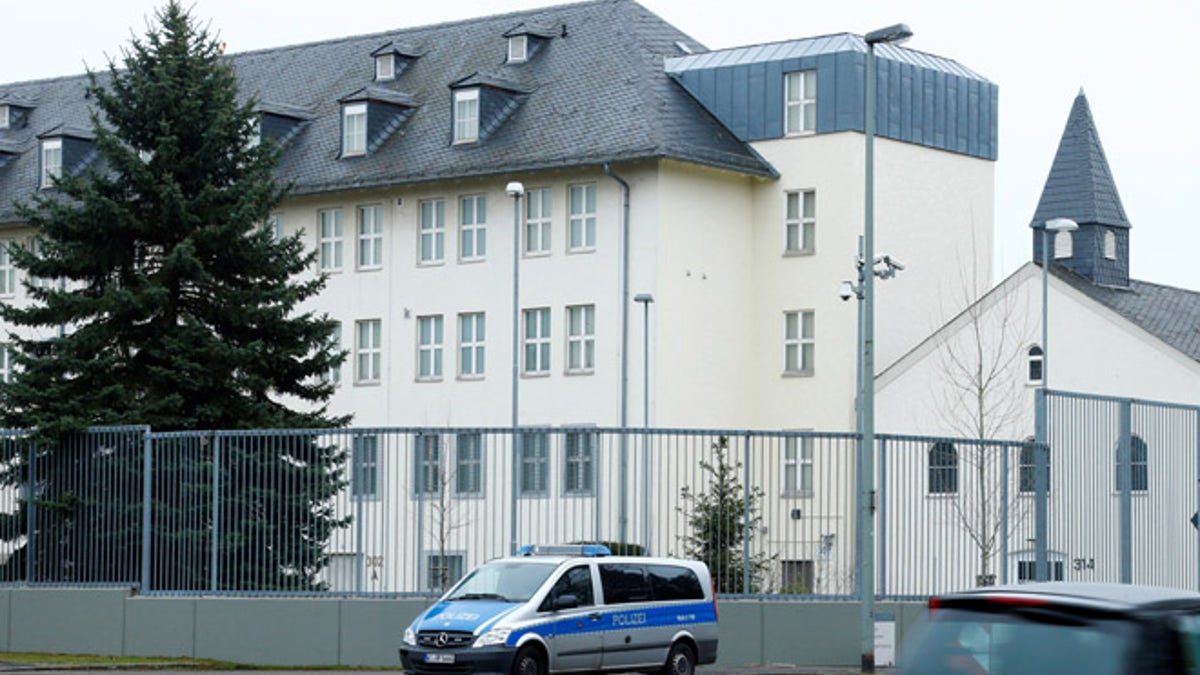
The Consulate General of the United States of America is pictured in Frankfurt, Germany March 8, 2017. REUTERS/Ralph Orlowski - RTS11XP5
One of the revelations about the U.S. consulate in Frankfurt, Germany, that has come from the WikiLeaks release of CIA files is that American spies can use the facility for hacking databases that are not connected to the Internet.
The anti-secrecy group’s dump this week of nearly 8,761 CIA files confirmed that the consulate is a base for covert and overt CIA operatives. It also provided a window into how American spies operate in Europe and – most importantly -- why Frankfurt has been so valuable for a specialized form of computer espionage.
“Germany is central to the rest of the European Union, which minimizes overall travel time to reach physical locations in any other country there. Since the types of attacks described [in the WikiLeaks documents] required physical access to computers, being able to get there quickly via train or other forms of transportation would be vital,” Nathan Wenzler, chief security strategist at San Francisco-based security consultancy AsTech Consulting, told Fox News.
“Even a one-hour flight to reach a neighboring major city would allow for faster response than, say, a seven-hour flight from the east coast of the U.S,” he said.
“Trying to hack a system that's connected to the Internet doesn't really require physical proximity, so, like most nation-state intelligence agencies, it's easier and more effective to just run those sorts of attacks from within your own borders,” Wenzler said.
“Frankfurt would allow for a more ‘social engineering’ style of hacking, where the agent would need to gain physical access to a system by convincing the people around it to allow the agent to use it. Since that would require moving people around to get to those destinations, having a central location like Frankfurt to use as a hub for your operations just makes logistics more simple and reduces the time needed to execute,” Wenzler added.
The files explain how operatives can get through German customs without delay, including claiming they are with the State Department and are supporting technical consultations at the consulate.
“Breeze through German Customs because you have your cover-for-action story down pat, and all they did was stamp your passport,” the leaked CIA instructions say.
In a report for operatives new to the area, the CIA told operatives how to behave:
“Be aware that your coworkers here are all undercover;
“While cover seems like an administrative thing back home, it is vital in the Field;”
“Help protect everyone's cover. Avoid using terms outside of the SCIF that could betray that people are not ‘State Department’ employees. Better to keep work discussions at work.”
"Do not leave anything electronic or sensitive unattended in your room.”
Paul Innella, CEO of TDI, a cybersecurity services firm headquartered in Washington, D.C., that works with the U.S. government and private sector clients across the globe, said the leaks have set the CIA back years.
“Things change fast in the cyber world and we need to carry out our missions of intelligence gathering, unencumbered by leaks such as this.”
The CIA won’t respond, the agency’s spokesperson Heather Fritz Horniak said: “We do not comment on the authenticity or content of purported intelligence documents.”
But a number of technology experts, federal law enforcement, and members of Congress believe the documents are authentic.
Germany’s chief federal prosecutor has launched an investigation into the alleged hacking operations, but Innella said the U.S. may have secret agreements with Germany to assist its government, and noted spies and a state-sponsored hacking activity are “effectively untouchable” while in that domain.
The voluminous number of CIA documents represents just 1 percent of what Wikileaks has obtained from the CIA, but has already revealed to the world some of the spy agency's most prized cyber tools. The CIA has the ability to spy on its targets through their smartphones, computers, and some televisions, and has researched ways to hack into the electrical systems of automobiles. There could be nearly 1 million files and documents yet to be released.
Germans have known since at least 2013 that the Frankfurt facility, the largest US Consulate in the world, is CIA territory. According to German media, DW, the consulate became “the focus of a German investigation into U.S. intelligence capabilities following the 2013 revelation that NSA agents had tapped Chancellor Angela Merkel's phone.”

